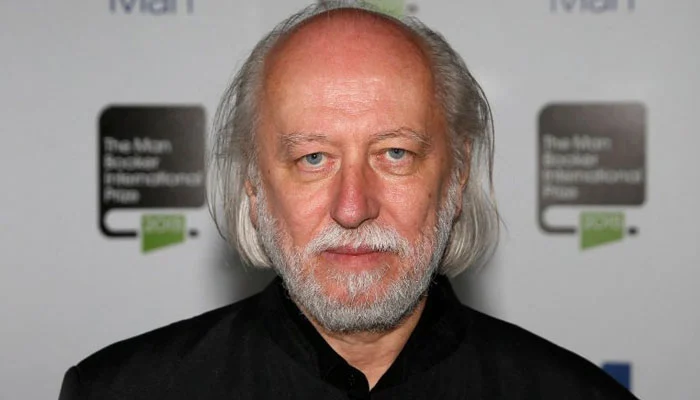Select Language:
Laszlo Krasznahorkai, widely regarded as Hungary’s most influential living author, was awarded the Nobel Prize in Literature on Thursday. His work delves into themes of postmodern dystopia and deep melancholy. The Swedish Academy praised him “for his powerful and visionary body of work that, amidst apocalyptic fears, affirms the enduring strength of art.”
Expressing his excitement, Krasznahorkai shared with Sveriges Radio, “I’m very happy, feeling calm yet a bit nervous,” and added, “Today is my first day as a Nobel laureate.”
The Academy spotlighted Krasznahorkai’s debut novel from 1985, “Satantango,” which elevated his profile in Hungary and is still his most renowned piece. They called it “a literary sensation.”
Described as a master epic storyteller in the Central European tradition, Krasznahorkai’s style echoes Kafka and Thomas Bernhard, marked by absurdism and grotesque excess. Yet, he also explores Eastern influences through a more contemplative, nuanced tone, inspired by his travels to China and Japan, which have heavily influenced his later works.
Krasznahorkai, 71, grew up in a middle-class Jewish family. His experiences living under communism, combined with extensive travels—initially moving abroad in 1987 to West Berlin for a fellowship—have shaped his literary voice. His novels, stories, and essays are especially well appreciated in Germany and his native Hungary.
His writing is known for its challenging depth, which Krasznahorkai once described as “reality examined to the brink of madness.” The Academy’s decision was driven by his uncompromising artistic vision and his ability to see through social fragility, reaffirmed by member Steve Sem-Sandberg.
He is the second Hungarian laureate, after Imre Kertesz in 2002. Last year’s laureate was South Korean author Han Kang, the first Asian woman to win the Nobel.
The Swedish Academy has faced ongoing criticism for its lack of diversity, with women representing only 18 of 122 laureates since 1901. Reforms have been undertaken since the #MeToo scandal of 2018, aiming for a more inclusive, global perspective.
The Nobel Prize includes a diploma, a gold medal, and a $1.2 million award. Krasznahorkai will receive the honor from King Carl XVI Gustaf in Stockholm on December 10, marking the anniversary of Alfred Nobel’s death in 1896.





